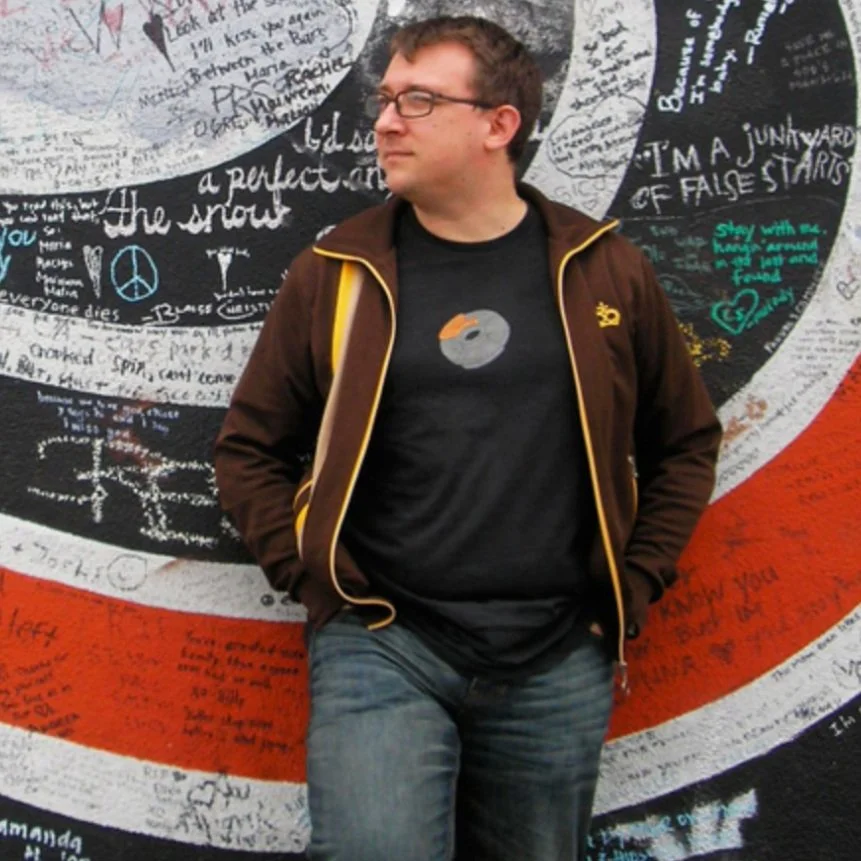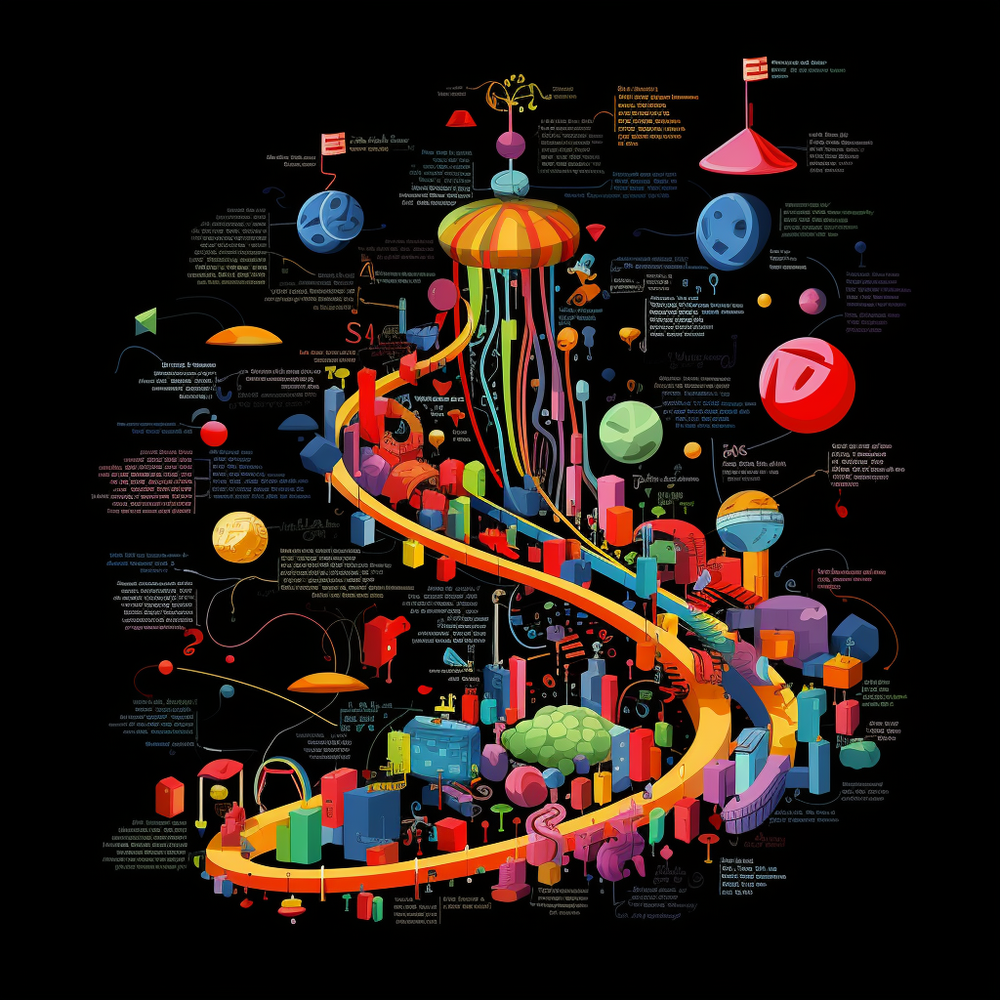The Art Of Being Helpful
First.io Interview, San Francisco 2018
Among the highlights:
The strongest relationships are the ones with no catch-up time.
Make your customers' welfare priority No. 1.
You need to hone your ability to be helpful at every turn.
Mike Schneider: Welcome back to another series of First Person. And I'm honored to have Matthew Shadbolt, Chief Product and Marketing Officer at Inman.
Matthew Shadbolt: Hi, great to be here.
Mike Schneider: Thanks for joining us.
Matthew Shadbolt: Yeah, my pleasure.
Mike Schneider: So we are a company focused entirely on relationships. We do the technology side, but we like to just have conversations with industry leaders because everybody knows and says this industry is about relationships. What does that actually mean? I'd love to hear what you see as you've been in this space and what does that look like?
Matthew Shadbolt: Yeah. I think, you know, when people talk about relationship building, the importance of relationships very often it's lip service, right? I'm sort of not a fan of people that collect relationships.
Mike Schneider: Right.
Matthew Shadbolt: Yeah, LinkedIn feels a bit like that to me. Like, people that are sort of building a database that somehow will be put to use, but it’s like thousands of what they call 'weak ties.' Right?
Mike Schneider: Yeah. Sure.
Matthew Shadbolt: This sort of strength of weak ties idea. Whereas I think that Connect, where we're at right now, is a really good example of how digital relationships work in the real world. Because you arrive at Connect, and there are all these people that know you, and they know everything about you because you know that from Facebook or Twitter.
Mike Schneider: Been connected on Facebook and all that.
Matthew Shadbolt: Email or phone calls or whatever it might be. And there's no distance or there's no catch-up time.
Mike Schneider: Yep.
Matthew Shadbolt: That's where I think the relationships are strongest. When I think about non-professional relationships, when I think about my friends and my family, my best friends are all back home in England.
Mike Schneider: Yep.
Matthew Shadbolt: And I speak to my best friends pretty much every day. And then when I go visit them, there's no catch-up. "How have you been?"
Mike Schneider: Sure.
Matthew Shadbolt: Because they know how I've been because we talked – we talk all the time.
Mike Schneider: Last week. Yesterday.
Matthew Shadbolt: So, when I think about the strongest relationships that I have in my life, there's no space and no catch-up time and it's just everybody already sort of just knows.
Mike Schneider: Sure. Is there anything that stood out to you as you got into the real estate – I'm curious how you got into the real estate side of this. About relationships in this industry versus others, from a business side of things?
Matthew Shadbolt: Yeah, sure. I think a lot of what masquerades as relationship management can feel quite phony in the real estate industry.
Mike Schneider: Yep.
Matthew Shadbolt: I mean you are not fostering a relationship with me by sending me your fridge magnetic with your contact details. Do you know what I mean?
Mike Schneider: Yes. Yeah.
Matthew Shadbolt: You're not building a relationship with me.
Mike Schneider: That calendar didn't do it for you?
Matthew Shadbolt: It can feel very phony in that regard. And I can sort of feel when I'm part of a drip marketing campaign.
Mike Schneider: Sure, sure.
Matthew Shadbolt: I think people are increasingly getting very smart about smelling that.
Mike Schneider: Sure.
Matthew Shadbolt: And it doesn't smell good, I think.
Mike Schneider: Yeah, yeah, yeah.
Matthew Shadbolt: You get a tuned radar to that. But when I think about the relationships that I have inside the real estate industry, I think about people that have a clear interest in the welfare of their customers. And it's interesting how people are able to sort of own very specific geographies that way.
Mike Schneider: Yes.
Matthew Shadbolt:There's an agent that, if I ever I had a question about Miami, it would just be this person that I would reach out to based on my relationship with her. And there must be thousands of agents that work that market, but for me, she has that mindshare completely locked up.
Mike Schneider: Yeah.
Matthew Shadbolt: And then whenever I think about LA or Chicago or the Hamptons or whatever it might be, I have that same sort of mindset where there's one person that has locked this stuff up.
Mike Schneider: Sure.
Matthew Shadbolt: So, when I think about the relationships it's almost like, people that I know work really hard on behalf of their customers and they really care
Mike Schneider: Yeah.
Matthew Shadbolt: But they're also not salesy, as well
Mike Schneider: Yeah.
Matthew Shadbolt: The kind of relationship I have with them is not predicated on this idea of them reinforcing their realtor-ness to me on Facebook every day
Mike Schneider: Yeah.
Matthew Shadbolt: You know? I'm interested in just getting to know them, and there's a surprising amount of information over time that you get to know about somebody that way.
Mike Schneider: Yes.
Matthew Shadbolt: Political persuasions, food preferences, family. You learn all of that stuff and very often, you don't meet for years.
Mike Schneider: If it's a real relationship, you learn all of that stuff over time.
Matthew Shadbolt: But these ties start to strengthen and I think that's when it's really good, I think.
Mike Schneider: I think you hit on a really important point, which is that in real estate, it is over time. Because you don't transact every year, every two years, even every three years. So I think that's really important. I'm curious. I bet you would have a very unique perspective plus you do product and marketing, in terms of relationship in that front.
Mike Schneider: Well, often times, they just are trying to think of, "How do we expand the reach?" And so this muddied world of relationships and marketing, you said, it's certainly not the refrigerator magnet. But, when you're in a business about Connect, where we're sitting today and all of this, how do you think about relationships in the marketing world and what you guys are doing with Inman?
Matthew Shadbolt: Yeah. We talk a lot about this inside my team at Inman.
Mike Schneider: Okay.
Matthew Shadbolt: Especially on the product side.
Mike Schneider: Yeah.
Matthew Shadbolt: And, the thing that we come back to over and over again is just this premise of being as relentlessly helpful as possible. Everything that we do, whether it's something that we built from the website, something that we do for people in person at Connect--a sign we may design or something that we would do for onstage.
Matthew Shadbolt: How we think about the schedule and the agenda, how we think about an email campaign to try and get people to come to Connect--whatever it might be. It's informed by this spirit of being relentlessly helpful. And I talk to my team a lot about this idea of helpfulness. Because I think it's really, really important that before you hit that publish button, before you hit that send button, that you just sort of say, "How helpful is this really?"
Mike Schneider: Yeah.
Matthew Shadbolt: And that's the word that I use with my team, is that, "Really?"
Mike Schneider: Really?
Matthew Shadbolt: "How helpful is this, really?" You know, because you get very caught up in the moment of having to get something out the door.
Mike Schneider: Sure.
Matthew Shadbolt: And that sort of gut check and saying, "You know what, the recipient of this, just, isn't going to care."
Matthew Shadbolt: On their phone or, in the middle of a billion things--how helpful is that stuff really?
Mike Schneider: Yeah.
Matthew Shadbolt: That's a really important question to ask. And that's the kind of question I ask of our design team in particular.
Mike Schneider: Sure.
Matthew Shadbolt: They may come up with some particularly beautiful solution to thinking about recirculation and how people move between stories on inman.com, but if it's not genuinely helpful, like if the logic behind that module is not smart enough to say, like, "Okay I'm reading a story about Compass, here's not just more stuff about Compass, but how do I think about related things that might be about Redfin, Zillow or something like that." Like, if it's not genuinely building out context and allowing that user to think deeper about that topic, then it's not as helpful as it could be.
Mike Schneider: Yeah.
Matthew Shadbolt: So, that's sort of where I push them.
Mike Schneider: Yeah, it's just really interesting, because people do have a relationship with your product. Right?
Matthew Shadbolt: Absolutely.
Mike Schneider: And you develop that over time, just like you do any relationship. You're talking to them, you're presenting to them, they're engaging. It's two-way.
Matthew Shadbolt: Very much so. I mean in many ways I think our audience is our product and I think, certainly, when you get to something like Connect, the power of the conference is only partly about what goes on stage.
Mike Schneider: Sure.
Matthew Shadbolt: Right? I mean, you see what goes on in the lobby, you see people arriving, and hugging each other.
Mike Schneider: Yes.
Matthew Shadbolt: And then they're sad to leave and just the scope of connections that get made. That's really what we've built here at Connect. It is the ability for 4,000 people to come together, build their businesses, get to know each other, especially over time.
Matthew Shadbolt: And you see it with people that come back to Connect over and over again. They come to hang out with there, now, friends.
Mike Schneider: Yes.
Matthew Shadbolt: Just as much as they come to see Gary Keller or Robert Rivkin or whomever. What we really build is an engine for fostering relationships.
Mike Schneider: Wow. Well, whether it's personal or from a marketing perspective or product eye, what would be a Matthew Shadbolt pro tip on how to get away from the refrigerator magnet? What's a pro tip on actually investing your relationships?
Matthew Shadbolt: Take your time. Take your time. When I think about relationships that I've built professionally, it's a very easy thing, it's a very delicate thing at the beginning.
Mike Schneider: Yeah. Sure.
Matthew Shadbolt: Right? Like a real relationship. If it was somebody you were interested in dating, or something, you have to take it easy there, you know?
Mike Schneider: Yep.
Matthew Shadbolt: And I think that, when you think about the professional relationships, there are always so many ways to blow it really easily at the beginning, where you get the immediate email follow up. And I find this particularly acute at real estate conferences, where you meet somebody, and then the next day you get the email about, you know, "If I'm ever interested in buying or selling in that area." I'm like, "I am not in the market at all."
Matthew Shadbolt: When I think about the relationships that I do have that are super strong in real estate, they've been built over 5, 10, 15 years, and I know these people. I know their families, I know their pets and we just see each other all the time. And there's no selling there.
Mike Schneider: Sure.
Matthew Shadbolt: And that for me is the really important thing because you don't need to sell – you're locking up mindshare anyway, by doing that. By just being this normal person.
Matthew Shadbolt: Just this idea of genuinely being interested in the welfare of other people.
Mike Schneider: Yeah.
Matthew Shadbolt: When I think about the best realtors, they're very selfless like that.
Mike Schneider: Yes.
Matthew Shadbolt: And when I think about the people that I have strong relationships within the industry, they're genuinely interested in how you're doing, and they remember the name of your wife, the name of your daughter. And they know that my daughter is into gymnastics, or just went to the beach – they know that stuff, because they're paying attention and they remember.
Mike Schneider: Yeah.
Matthew Shadbolt: So it's a very hard and challenging thing to stay on top of because it's a lot of information to retain about a lot of people. But if you're genuinely passionate about that stuff, it's not really work, I think.
Mike Schneider: No, it's not. Well, that, that's really helpful. I think our audience will be really intrigued. Be genuinely interested. And I loved, relentlessly focused on providing value.
Matthew Shadbolt: Yeah.
Mike Schneider: Yeah. That's great. Thank you Matthew.
Matthew Shadbolt: Cool. You're very welcome. Thanks for having me.

















